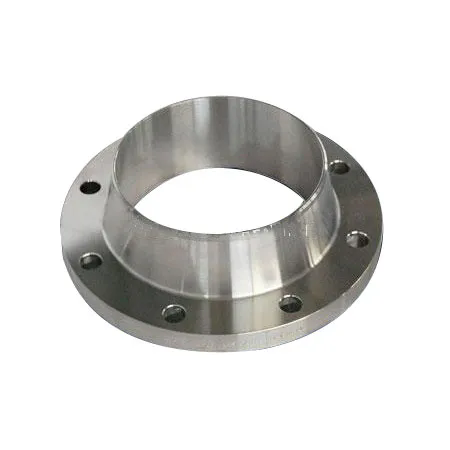Advantages of Forged Welded Neck Flange
2024-08-06
Forged welded neck flanges are a type of flange used in piping systems, characterized by their strong and reliable construction. Here are the key advantages of using forged welded neck flanges:
Advantages of Forged Welded Neck Flanges
1. High Strength and Durability:
- Forged Construction: The forging process enhances the mechanical properties of the flange, resulting in high strength and resistance to mechanical stress, making it suitable for high-pressure and high-temperature applications.
- Welded Neck: The welded neck design provides additional strength and durability, helping to distribute stresses evenly and reduce the risk of flange failure.
2. Enhanced Leak Resistance:
- Integral Weld: The welded neck flange offers improved leak resistance compared to other flange types, as the integral weld provides a continuous, strong connection between the neck and the flange body.
- Secure Connection: The welding process ensures a tight, secure connection that minimizes the potential for leaks in the piping system.
3. Improved Stress Distribution:
- Neck Design: The tapered neck of the flange helps to distribute stresses more evenly across the flange and the connected pipe, reducing localized stress concentrations and increasing overall system reliability.
- Reduced Flange Fatigue: This stress distribution helps to minimize flange fatigue and extend the service life of the flange and the piping system.
4. Corrosion Resistance:
- Material Options: Forged welded neck flanges can be made from corrosion-resistant materials, such as stainless steel or high-alloy steels, making them suitable for use in corrosive environments.
- Protective Coatings: These flanges can be coated with protective layers or treated to enhance their resistance to corrosion and other environmental factors.
5. Versatility and Compatibility:
- Wide Range of Applications: Forged welded neck flanges are used in various industries, including oil and gas, chemical processing, power generation, and water treatment, due to their strength and reliability.
- Standardization: They are available in various sizes, pressure ratings, and material grades, allowing them to be compatible with a wide range of piping systems and applications.
6. Enhanced Structural Integrity:
- Continuous Weld: The continuous weld between the neck and the flange body provides structural integrity and reduces the potential for weaknesses that can occur with other flange designs.
- Robust Design: The robust design of forged welded neck flanges helps to withstand severe operating conditions and high mechanical loads.
7. Ease of Installation:
- Alignment and Fit: The welded neck design helps to align the flange properly with the pipe, making the installation process easier and more accurate.
- Reduced Maintenance: The secure and reliable connection reduces the need for frequent maintenance or adjustments, contributing to lower overall maintenance costs.
8. Cost-Effectiveness in High-Pressure Applications:
- Long-Term Reliability: The durability and strength of forged welded neck flanges make them a cost-effective choice for high-pressure applications, where the initial investment is justified by the long-term reliability and performance.
Conclusion
Forged welded neck flanges offer several advantages, including high strength and durability, enhanced leak resistance, improved stress distribution, corrosion resistance, versatility, enhanced structural integrity, ease of installation, and cost-effectiveness in high-pressure applications. These benefits make them a reliable and practical choice for a wide range of piping systems and industrial applications.



